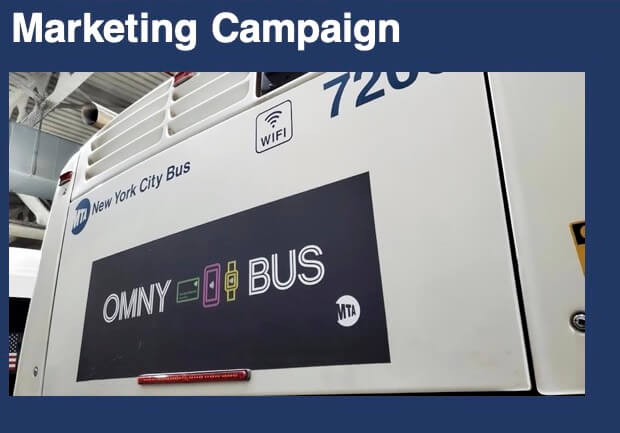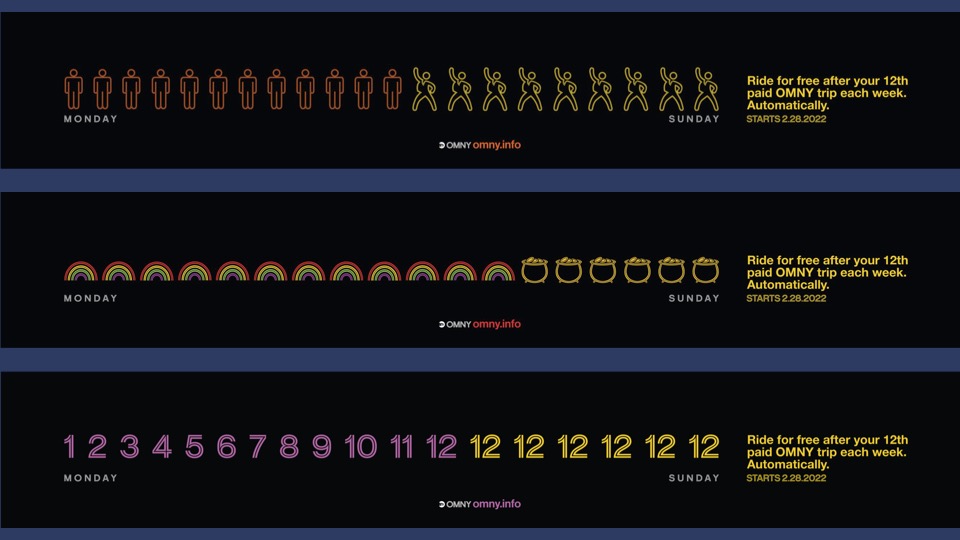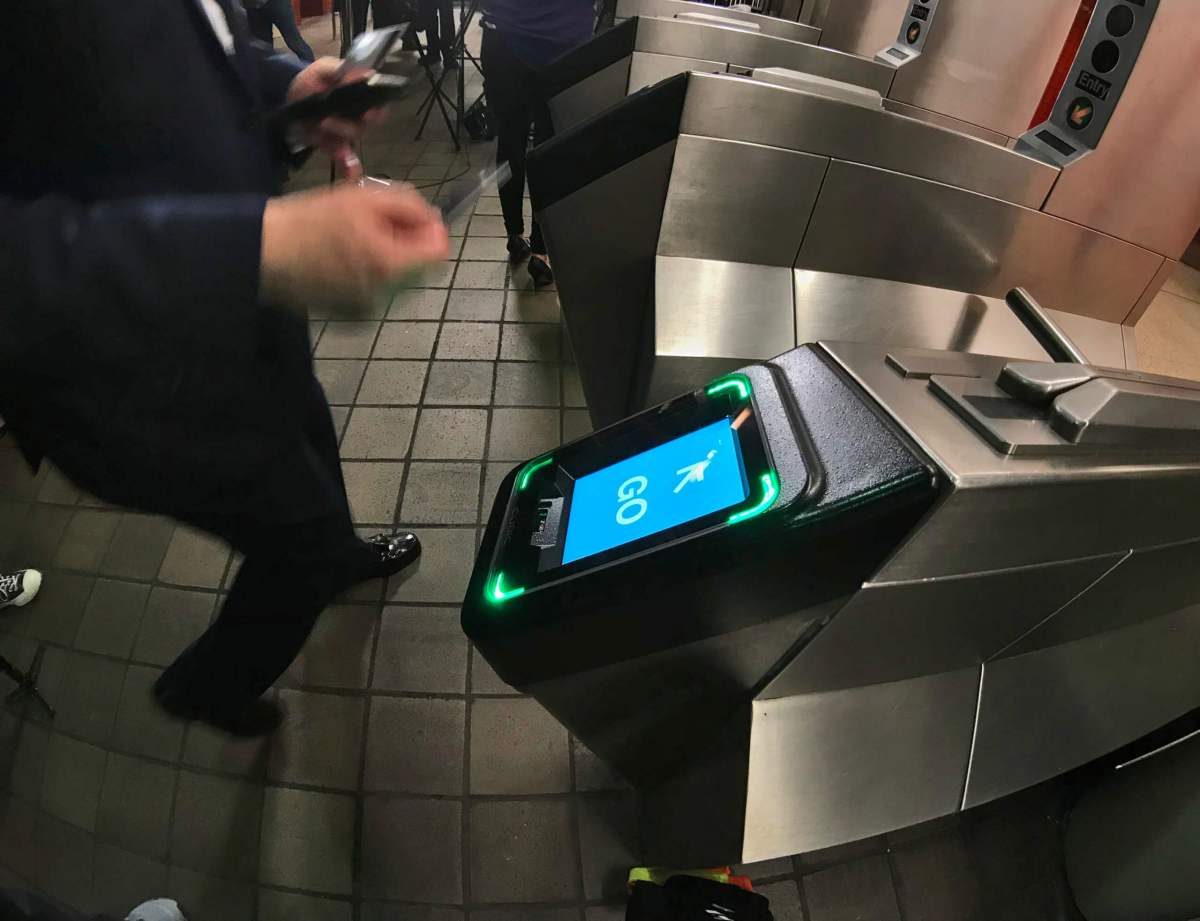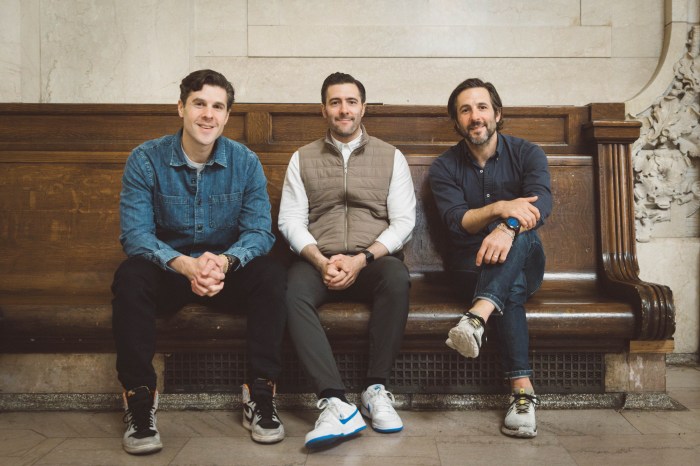Subway and bus commuters can unlock unlimited trips using OMNY after 12 taps within a week, as the MTA rolls out its new fare cap Monday.
After riders pay 12 fares with OMNY between Mondays and Sundays starting on Feb. 28, all remaining taps during that timeframe are free, under the authority’s new program.
The initiative is part of a package of discounts and deals MTA launched to bring back riders, as numbers still remain at about just above half of pre-pandemic figures, including a set of promotions that debuted Friday on its two commuter services, the Metro-North Railroad and the Long Island Rail Road.
“This is all about winning riders back to the MTA system,” said MTA Chair and CEO Janno Lieber in a statement.
Fare capping has become commonplace in other transit systems around the world, and it allows riders to not have to choose between shelling out the full cost of an unlimited weekly pass upfront or paying $2.75 for each trip at the start of a week.
Straphangers won’t pay more than $33 using OMNY during the Monday-Sunday timeframe — which is the cost of a weekly unlimited MetroCard — but they have to use the same OMNY card, contactless bank card, smartphone, or smart watch for each tap.

About one in four rides currently are paid with OMNY and the MTA plans to phase out the MetroCard completely by 2024.
MTA leaders first announced fare capping back in December and are going to test it for at least four months to see if it brings more commuters back and motivates people to switch from using MetroCards to OMNY.
The agency estimates it will cost them $3-5 million a month in lost farebox revenue, but if it’s successful officials could extend it or even make it permanent.
Workers plastered the Big Apple’s transit network with playful ads in recent days, such as emoji-laden signs explaining the cap system, and an “OMNY Bus” to promote the contactless fare payment system.

On Monday, MTA will set up an OMNY help desk at the Grand Central Terminal entrance to the 4, 5, and 6 trains from 10:00-11:30 a.m. to answer questions about OMNY and fare capping.
The New York Transit Museum’s outpost at the midtown commuter hub will sell pre-loaded OMNY cards available for four trips for a limited time to celebrate the launch.
OMNY cards are also sold at pharmacies and other small businesses as the agency still has to install new vending machines to sell the black $5 cards at stations.
For riders of Metro-North and LIRR trains, several discounts already hit the rails on Friday.
A new 20-trip ticket valid for 60 days is about 20% cheaper than buying the same number of trips individually, and is aimed at suburban commuters who are coming back to work in-person some days, according to Lieber.
“The new 20-trip ticket option was created this specifically for the rider who might be coming into the office only a few times a week,” the transit chief said.
The CityTicket offers a $5 flat fare for one-way rides on the commuter rails within New York City during off-peak hours on weekdays, down from previously $7.25 on the Metro-North and $7.75 on the LIRR.
It’s an expansion of a deal already available on weekends, and similar to the existing Atlantic Ticket, which offers $5 one-way trips at all hours for travel between the 10 stations of the LIRR in Brooklyn and southeast Queens.
MTA is also cutting monthly ticket pass prices by 10% on the commuter railroads.
However, as of Tuesday, March 1, LIRR and Metro-North riders will have to start paying full peak fares again, as MTA is discontinuing its pandemic-era markdown of having around-the-clock off-peak prices.
The two commuter train networks have been the slowest to recover ridership during the COVID-19 pandemic in the MTA, with daily trips at 48% of 2019 numbers for Metro-North and 49% for LIRR from Feb. 1 through the latest counts on Feb. 24.
The subway carried 55.8% of pre-pandemic passengers and the buses had 59.6% during that time, according to MTA counts.
Read more: Revel Enhances NYC EV Infrastructure with New Superhubs

































